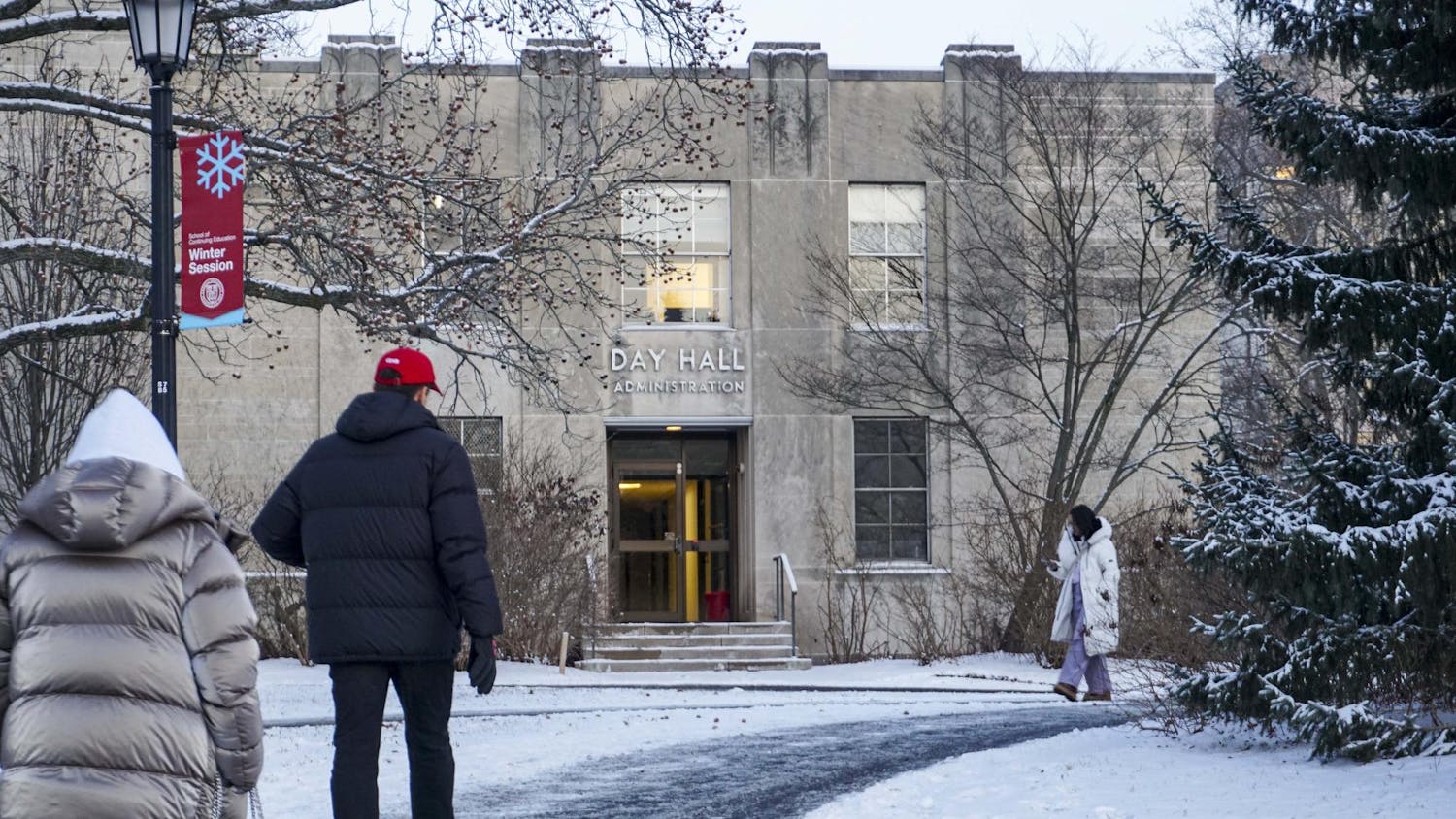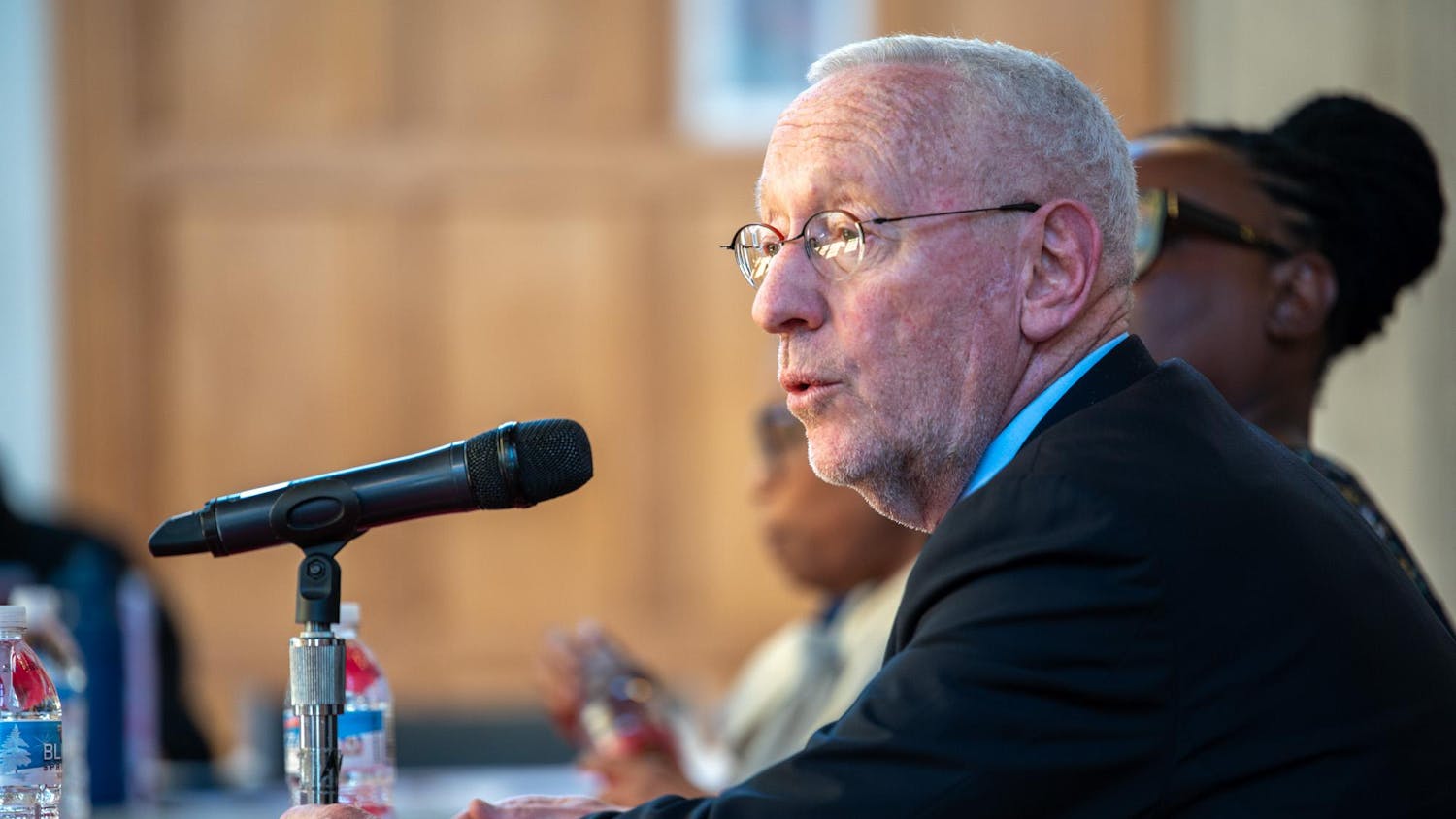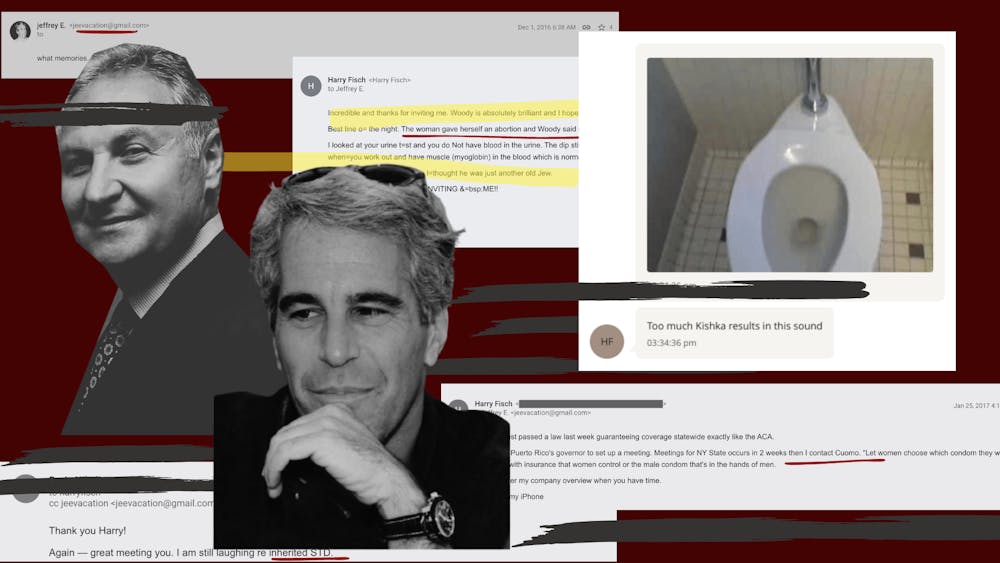Protests against the latest acts of police brutality and anti-Black racism sparked two emails from Cornell. But Cornellians want more than words.
Many Cornell students — galvanized by the Black Lives Matter movement and recent police killings of Black Americans — have taken it upon themselves to enact change, planning an Ithaca protest, forming a coalition of over 175 student organizations and raising over $55,000.
Now, a group of students have written and released two petitions proposing immediate anti-racist change — including the creation of an anti-racism institute, the firing of Prof. David Collum, chemistry, and a response to years of unmet demands.
In her first response on May 29, President Martha E. Pollack promised to “address [racism] directly in our educational programs, in our research and in our engagement and related activities."
Days later, Pollack outlined in a June 3 email the next steps the University would take, including two initiatives to improve the Cornell University Police Department, a series of Zoom sessions on institutional racism and allyship and a campus-wide book read of Ibram X. Kendi’s How to be Antiracist.
Despite the initiatives, some students criticized the University for not going far enough in saying it condemns police brutality.
Initially, two different groups of dissatisfied students set out to list demands to answer these criticisms in petitions. When the groups heard about each other, they decided to band together to avoid competition, said Amber Haywood ’21, one of the organizers.
“The petitions were developed separately, but we realized … we are both trying to do the same thing,” said Gaby Kubi ’20, another organizer. “It’s a good problem to have that a bunch of people have a bunch of different ideas as to what the University needs to do specifically to better itself.”
At 5 p.m., they started circulating the two petitions on a single Google form — mainly through a social media blast with the hashtag “#DoBetterCornell.” By 9 p.m. Friday evening, the petitions had over 800 signatures, according to Kubi.
The first petition, written by recent graduates Kubi and Maame Britwum ’20, calls primarily for Cornell to create a student-led Alternative Justice Board and an Anti-Racism Institute — as “meaningful, systemic action” on the institutional level.
Its first action calls for an Alternative Justice Board to have jurisdiction in determining punishment for when “students are harmed/hurt by other students or student organizations,” including physical violence, identity-based harassment, discrimination and hazing.
The petition also lays out the makeup of 27 students on the board — half of which would need to be a part of marginalized communities on campus and six of which would come from the Tri-Council members.
“The idea is to build a culture of accountability and a culture of understanding,” Kubi said about the board, which would support students to bring allegations and offer “restorative” discipline.
The first petition also proposes an Anti-Racist Institute to “create a centralized department or program that has the explicit purpose of fighting racism.”
The institute would be a resource for change on campus, as it would develop academic diversity requirements and provide resources and diversity training.
Among reforms to residential adviser training, funding for Ujamaa and Black Students United and moving the Africana Library closer to campus, the petition also demands that the University establish a Cornell University Police Department Oversight Committee hosted in the Anti-Racist Institute, run mostly by undergraduate students who are not appointed by the CUPD.
Other than Pollack and Cornell’s Public Safety Advisory Committee, CUPD has no other direct, independent oversight. In March, the Student Assembly passed a resolution calling for an oversight committee composed of members from Cornell’s governing bodies and CUPD. Cornell administration has not yet responded to the resolution.
A second petition written by Haywood calls for Cornell to make eight changes during the fall 2020 semester so it can “take a stronger stance against the issues of racism, transphobia, and misogyny in our society.” The petition also mentions past proposals unmet from Julia Feliz in 2019, as well as Black Students United in 2017 and 2015.
Academically, the petition demands the implementation of a “Universal Learning” curriculum to supplement the current diversity and inclusion training in place, as well as inclusion of student leaders in the faculty hiring process to increase diversity. As of fall 2019, 74 percent of Cornell’s 2,798 faculty members were white.
Haywood’s petition also calls for the firing of chemistry professor Collum — who has a history of making incendiary comments — after he faced backlash for tweeting in support of two Buffalo police officers that pushed and severely injured an 75-year-old man in an incident Gov. Andrew Cuomo (D-N.Y.) called “wholly unjustified and utterly disgraceful.”
Pollack called Collum’s tweets “not just deeply insensitive, but deeply offensive” — but maintained that he has “a right to express his views in his private life.” Collum has since stepped down from his position as director of undergraduate studies for the chemistry department, a change which was originally scheduled to go into effect July 1.
The petition asks for Collum to be replaced with a Black chemistry professor, as currently there are none, according to Haywood.
Like Kubi’s petition, Haywood’s petition also advocates for a CUPD oversight committee and calls for the disarming and defunding of Cornell Police.
The final three demands entail creating support groups for students who have faced bias or discrimination, fostering a better work environment for service workers and abolishing the student contribution fee.
“A lot of students’ internships were canceled or unpaid,” Haywood said about the student contribution fee. “It’s ridiculous and puts the struggle on low-income students and [disproportionately affects] minority students.”
Ultimately, Kubi fully supported both petitions, saying “they depend on each other” in effecting change. She said both were deeply necessary in building accountability to prevent the University’s complicity in racism on campus and in the world, not just as temporary fixes.
“A lot of things we conceptualize as campus issues are reflective of the wider society we live in,” Kubi said. “It might seem like one small thing that just happened at Cornell … but it’s bigger than that.”
Read the two petitions here.
[scribd id=465449333 key=key-LIbKqurNuft9RrgZADjK mode=scroll]
[scribd id=465449334 key=key-vikKaUgLI5HTJZXfw3uy mode=scroll]

Student Petitions Demand Anti-Racist Action from Administration
Reading time: about 6 minutes
Read More










